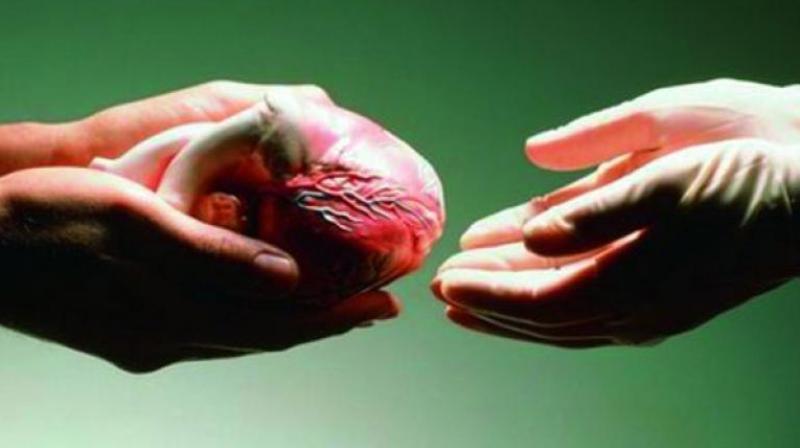Bengaluru: 2-year-old undergoes liver transplant
Children are more prone to jaundice because of the metabolic/haematological diseases causing jaundice manifests commonly in early age.

Bengaluru: Two-year-old, Vismay, was unwell for five days and facing severe drowsiness. After his parents noticed his eyes getting yellow, he was immediately admitted to a private hospital in the city.
Vismay’s liver functioning started to deteriorate alongside development of altered sensorium and coagulopathy. He had developed Fulminant hepatic failure but the cause was not known despite standard evaluation by the doctors.
Despite continuous monitoring and administration, there seemed no improvement in his condition, rather there was further deterioration in the clinical condition with worsening encephalopathy. Vismay required intubation and support to correct coagulation.
After a complete assessment by Columbia Asia Referral Hospital Yeshwanthpur, doctors explained the critical nature of his illness in view of fulminant hepatic failure and the possibility of need for an emergency liver transplant to his parents and family.
“Children are more prone to jaundice because of the metabolic/haematological diseases causing jaundice manifests commonly in early age. Immunity in children is lower compared to adults; hence they are more prone to infections. Infant’s liver is not fully mature to handle increased loads of bilirubin due to any cause,” said Dr Aravind Kidambi Seshadri, Consultant-Liver transplant and HPB surgery at Columbia Asia Referral Hospital Yeshwanthpur.
Vismay was not showing any improvement even after the next 48 hours, hence a decision was taken by a multi-disciplinary team to go ahead with an emergency living donor liver transplant. Vismay’s father, Vijay was more than willing to donate, if needed; he underwent the tests required for evaluation as per the protocol and luckily the test revealed that the father was fit to donate.
Explaining about the uniqueness in the case, Dr Kidambi said, “Vismay’s case is unique because of the parents timely seeking medical attention, timely transfer to tertiary centre equipped to deal with these conditions and appropriate time management. Though no specific cause for liver failure was identified despite detailed evaluation (which happens in a proportion of cases - 10-20%), the outcome was successful post liver transplant.”
The team of doctors, headed by Dr Aravind Kidambi Seshadri, took 10 hours to perform the surgery. On the successful transplant, the baby was shifted to ICU on a ventilator and minimal inotropic support. Postoperative recovery was uneventful and the baby was discharged after 15 days.
“Two months back, Vismay started ailing from recurring jaundice. For first few days, his state was declining as the cause of the disease was not found,” said Vismay’s father, Vijay. He also said that being a parent, I was anxious about my son’s recovery. “After all the tests required for liver donation, I was found fit to donate and as a father, I felt a sigh of relief. The doctors went ahead with the living donor transplant. For fifteen days, he was under close observation. Vismay is recovering well,” Vijay added.

